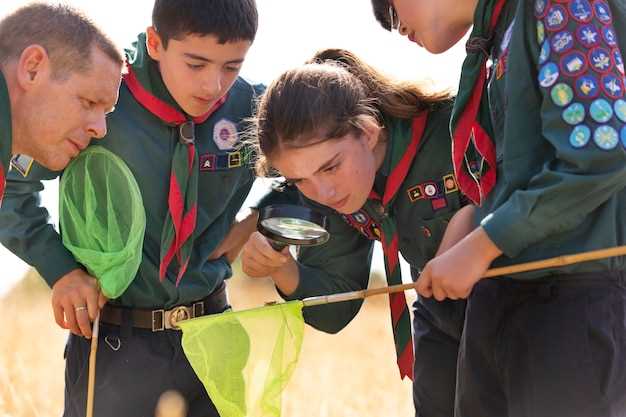The journey of learning is not a solitary path. For many, it encompasses myriad influences, experiences, and values that shape their perspectives. Students thrive when they feel their roots are recognized and valued. It is essential to foster environments where the richness of backgrounds enhances the educational landscape. This approach not only cultivates knowledge but also creates a sense of belonging.
Every individual brings a unique story to the classroom. These stories are powerful and can drive motivation. Educators play a vital role in this dynamic, serving as guides and mentors. They have the opportunity to weave different narratives into the fabric of teaching.
When learners see their experiences reflected back at them, a spark ignites. Achievement becomes more attainable. The acknowledgment of heritage fosters resilience and determination. Such connections foster a learning atmosphere where aspiration flourishes and barriers diminish.
Incorporating traditions, languages, and histories into education can revolutionize the experience of many. Engaging with local communities strengthens ties and builds trust. It empowers individuals, allowing them to navigate their educational paths with confidence. The outcome is a generation poised not just to dream, but to thrive and innovate, creating waves of change within their communities.
Cultural Identity and Academic Success

Understanding one’s roots can greatly influence a person’s journey in education. There exists a strong link between personal heritage and performance in school. When individuals acknowledge their background, they often find motivation and strength. This connection fosters a sense of belonging, which is crucial. Recognizing who they are can have significant implications for their achievements.
Engagement with traditions can enhance motivation. Activities that celebrate lineage inspire pride. This pride often translates into active participation in the learning process. As learners embrace their backgrounds, they open doors to new opportunities. Opportunities arise not only in academic environments but also in broader social contexts.
- Celebrating history enhances self-worth.
- Community support drives ambition.
- Tradition instills resilience in challenging moments.
- Connection to ancestors fuels passion for knowledge.
When young people see their culture reflected in educational materials, they are more likely to feel valued and capable, thus improving their engagement and performance. By recognizing this relationship, educators can create inclusive environments that nurture personal growth and academic achievement, allowing students to flourish in their respective fields.
Moreover, programs that incorporate local heritage into the curriculum can make learning more relatable. Such initiatives can bridge gaps between conventional education and community norms. Elements of storytelling play a pivotal role here. Sharing experiences enriches perspectives. Diverse narratives foster empathy and understanding among peers.
- Inclusive teaching methods broaden horizons.
- Peer collaboration enhances learning experiences.
- Mentorship programs provide guidance and support.
As institutions recognize the importance of personal narratives, they can tailor strategies to support every learner effectively. This acknowledgment not only boosts grades but encourages holistic development. Ultimately, creating spaces that honor diverse backgrounds shapes well-rounded individuals ready to tackle future challenges.
Understanding the Role of Cultural Identity

The essence of belonging often encompasses shared traditions, practices, and beliefs. It shapes individuals from a young age and influences their interactions with the world. When individuals connect with their heritage, they cultivate a strong sense of self. This connection can become a powerful motivator in various areas of life. It influences choices, aspirations, and perseverance in challenging situations.
Acknowledging one’s roots can lead to profound transformations, both personally and socially. Individuals who embrace their backgrounds often feel empowered to pursue their goals more vigorously. Their unique perspectives contribute significantly to the tapestry of society. This sense of purpose often arises from an understanding of their place within a larger narrative that transcends time and space. As they navigate their journeys, they draw strength and resilience from their ancestral stories.
This powerful bond not only enriches the individual but also benefits the community as a whole. When people gather around shared narratives, they foster collaboration and understanding. Each voice adds depth to the community dialogue. Such shared experiences create a supportive environment, encouraging individuals to strive for more. Through this lens, growth becomes a collective endeavor, reinforcing the significance of connection and support.
In summary, embracing one’s heritage leads to personal empowerment and community upliftment. It encourages individuals to explore their full potential, cultivating a sense of pride. By honoring traditions, they create a legacy that inspires future generations. Stories passed down through time serve as guiding lights in their paths. Ultimately, the interplay of heritage and ambition enriches life’s journey.
Defining Cultural Identity in Education
Understanding one’s background is essential in educational settings. It shapes interactions, influences learning, and fosters belonging. Each person brings a unique history and perspective into the classroom. This diversity enriches discussions, enhances creativity, and cultivates mutual respect. Recognizing these elements is crucial for personal development.
When individuals connect deeply with their roots, they often experience a sense of empowerment. This empowerment can drive them toward their goals. Moreover, acknowledging heritage allows learners to navigate educational spaces with confidence. Each lesson becomes more relevant when it resonates with personal experiences. This connection transforms passive learning into an engaging journey.
Furthermore, educational systems play a pivotal role in either reinforcing or challenging traditional beliefs. Teachers and institutions that embrace backgrounds cultivate an inclusive atmosphere. Such an environment can lead to meaningful relationships among peers and educators. It can also foster resilience, enabling learners to overcome challenges. When education reflects individual narratives, it creates more fulfilling experiences.
In conclusion, the significance of exploring these themes cannot be overstated. Through a thoughtful approach, we can nurture students who feel valued. By integrating personal stories within curriculum, the overall educational landscape improves. This not only benefits individuals but also enriches the entire community. Ultimately, knowing one’s essence ensures a brighter tomorrow.
The Importance of Cultural Heritage
Understanding one’s background is crucial for individual development. It shapes perspectives and enhances personal experiences. Traditions passed down through generations foster a sense of belonging. They create connections that bind communities together. Additionally, these practices serve as a source of pride and resilience.
Throughout history, unique characteristics of various communities have influenced ways of life. These elements manifest in art, language, and customs, providing depth and richness to human experience. When people engage with their roots, they cultivate a deeper appreciation for their surroundings. In doing so, they develop a strong foundation upon which to build aspirations and dreams.
- Celebrating heritage promotes self-esteem.
- It encourages community collaboration.
- Traditions provide frameworks for moral values.
- Engaging with history enhances critical thinking skills.
Moreover, acknowledging the significance of these legacies empowers individuals to navigate modern challenges while remaining connected to their roots. This balance allows for the growth of new ideas that respect historical context while enabling innovation. The interplay between the past and present creates opportunities for the future.
Ultimately, preserving this legacy is not just about maintaining the status quo; it is about fostering an environment where new generations can thrive. Each person’s journey contributes to a tapestry of shared knowledge. By valuing these traditions, communities can unlock potential that transcends limitations, driving progress and unity.
Challenges in Maintaining Cultural Identity
The preservation of heritage is a multifaceted struggle. Modern life often clashes with traditional ways. Many young individuals feel torn between two worlds. They navigate the expectations of both society and their roots. This constant balancing act creates significant stress and confusion.
As societal norms shift, the connection to the past can weaken. This decline in connection leads to feelings of alienation. Language loss compounds this issue. When native tongues fade, valuable traditions and stories risk disappearing. The disconnection from ancestral practices can leave individuals feeling adrift.
Peer influence plays a crucial role in this dynamic. Acceptance often comes at a price, as trends emerge that may not align with one’s history. The pressure to conform can overshadow a genuine appreciation for one’s lineage. Finding a voice in a fast-paced world can be daunting. Therefore, the need for affirmation from both community and family becomes paramount.
Institutional barriers further exacerbate the situation. Schools may lack relevant resources or understanding of unique backgrounds. Curriculum often overlooks significant aspects of heritage, leaving learners feeling undervalued. Additionally, the prioritization of standardized testing can sideline personal narratives. This environment cultivates a sense of inadequacy among those rooted in rich legacies.
Amidst these challenges, resilience shines brightly. Many find strength in their communities and kin. Support networks emerge, fostering a sense of belonging. Creative expressions through arts and storytelling become vital means of resurgence. Ultimately, navigating these hurdles requires a collective effort, honoring past while simultaneously striving for a hopeful tomorrow.
Benefits of a Strong Cultural Identity
A robust sense of heritage can profoundly influence personal growth. Individuals rooted in their origins often experience heightened self-esteem. They navigate life’s challenges with an inner strength that others may lack. Community ties are strengthened, fostering unity among peers.
Such connections reinforce belonging and create supportive environments. This bond can act as a shield against external pressures. Moreover, when faced with obstacles, those with a strong connection to their roots often seek guidance from their communities, leading to resilience.
| Benefits | Description |
|---|---|
| Enhanced Self-Confidence | A deep appreciation for one’s background cultivates assurance in abilities. |
| Community Support | A strong network provides emotional and social assistance during tough times. |
| Improved Mental Health | Understanding where one comes from positively affects emotional well-being. |
| Stronger Relationships | Ties to tradition can boost connections with family and friends. |
| Enhanced Learning Opportunities | Individuals may find motivation in their heritage to excel academically. |
In essence, embracing one’s background leads to numerous advantages that can enrich daily life. The sense of purpose and direction derived from one’s origins provides a strong foundation for growth.
Support Systems for Indigenous Students

Creating an environment that nurtures growth is essential. Various forms of assistance can significantly influence the journey of learners. These frameworks may include mentorship, community engagement, and access to resources. Support mechanisms play a critical role in fostering resilience. When individuals feel connected, they’re more likely to thrive and achieve their goals.
Mentorship opportunities are crucial for young learners. Connecting with seasoned individuals can provide guidance and inspiration. These mentors offer insights based on their own experiences. Moreover, establishing trust is paramount for effective relationships. Many realize that having someone to turn to can make a world of difference.
Community involvement fosters a sense of belonging that is vital. Participation in collective activities brings individuals closer together. Sharing experiences and knowledge strengthens bonds and enhances confidence. This shared journey can be a powerful motivator. When communities rally around their youth, the potential for growth multiplies.
Access to educational resources must not be overlooked. Libraries, technology, and academic support services are essential tools. These resources help to bridge the gap between aspiration and reality. Provisions of scholarships can greatly alleviate financial concerns. In such scenarios, students can focus more on their academic pursuits and personal growth.
Collaboration between schools and families reinforces the foundation for development. Regular communication ensures that everyone is on the same page. This partnership creates a holistic approach to education. When families are involved, students often feel more supported. Ultimately, the synergy between home and learning institutions shapes brighter destinies.
Building Community Connections
Creating strong bonds within a community is fundamental for progress and growth. It allows individuals to support one another while sharing experiences. Various connections can lead to opportunities that foster development. These relationships provide a network of resources that benefit everyone involved. When community members come together, they weave a strong fabric that can withstand challenges.
Through collaboration, ideas can flourish. People feel motivated when they see their peers succeed. Mentorship becomes pivotal, as established members guide those who are just beginning their journey. Networking also opens doors, inviting diverse perspectives that can ignite innovative solutions.
Active involvement in local initiatives cultivates a sense of belonging. Everyone has unique skills and talents that can contribute to shared objectives. By encouraging participation, communities can enhance their collective power, creating a supportive atmosphere that nurtures growth. This collective effort can transform individual aspirations into communal achievements that resonate throughout the entire society.
Furthermore, partnerships with educational institutions can lead to a better understanding of the needs and aspirations of the community. Engaging with local organizations fosters a spirit of collaboration and strengthens ties. By working hand-in-hand, both community members and educational entities can craft comprehensive programs tailored to specific goals. Such initiatives pave the way for sustainable transformations that benefit all.
Tailored Academic Resources
Creating resources that resonate with unique backgrounds can significantly enhance learning experiences. By recognizing distinct perspectives, educational tools can be fine-tuned. Many young learners thrive when they see reflections of their narratives in the material they study. These custom-fit resources pave avenues for engagement and understanding. Effective methods encourage personal connections, allowing for deeper exploration.
Incorporating stories, traditions, and values into curriculum design illustrates the importance of representation. When materials mirror lived experiences, motivation increases. A sense of belonging often develops, leading to greater enthusiasm for learning. A rich tapestry of content fosters an environment where wisdom is appreciated, and critical thinking can flourish.
This is especially crucial in educational settings, where conventional approaches may not fully resonate. When educators adapt resources, they lay the groundwork for inclusive dialogue. Such adaptations help bridge gaps, ensuring every learner finds relevance in their studies. Tailored materials support individual journeys, opening doors to critical skill development. They encourage exploration and inquiry, vital elements in the pursuit of knowledge.
| Resource Type | Description | Benefits |
|---|---|---|
| Culturally Relevant Texts | Materials that reflect the histories and stories of diverse communities. | Fosters connection and understanding; enhances engagement. |
| Community-Based Projects | Learning initiatives that involve local narratives and practices. | Encourages real-world applications; builds local ties. |
| Mentorship Programs | Connecting learners with role models who share similar backgrounds. | Provides guidance; inspires aspirations and goals. |
| Interactive Workshops | Hands-on activities that blend traditional knowledge with modern skills. | Enhances creativity; promotes collaboration and teamwork. |
Utilizing these specialized resources cultivates an enriching environment where every learner feels valued. As connections deepen, the path to acquiring knowledge becomes more inviting. Success emerges from understanding and adaptation, fostering a community where everyone can thrive. Such collaborative efforts build resilience and confidence, preparing learners for future endeavors.
Mentorship and Role Models
Support systems play a crucial role in shaping personal journeys. Having someone to look up to can inspire growth. Guidance transforms challenges into pathways for success. Positive influences can ignite passion and determination. This influence is vital in navigating one’s objectives.
Mentorship serves multiple purposes. It provides advice, encouragement, and resources. The relationship between a mentor and a mentee is dynamic and enriching. Both parties can learn from each other. Often, mentors share their own experiences to illustrate important lessons.
- Fostering resilience in the face of adversity.
- Enhancing self-esteem through recognition and support.
- Encouraging goal-setting and accountability.
- Creating networks that open doors to new opportunities.
By establishing connections with role models, individuals can visualize their potential futures, overcome doubts, and gain fresh perspectives on their aspirations. The presence of mentors provides a safe space for learning and growth, allowing mentees to explore their passions while receiving constructive feedback. This relationship often results in enhanced skills, increased motivation, and a broader understanding of possibilities that lie ahead.
Real-life examples resonate deeply, particularly when mentors share challenges they overcame. These narratives demystify personal struggles, helping others realize they are not alone in their quest. Furthermore, mentors who actively engage with their mentees foster a sense of belonging and community. Such interactions are foundational for nurturing long-lasting bonds.
In conclusion, the impact of mentorship cannot be overstated. Mutual growth enriches the experience for everyone involved. Future generations can thrive with the right guidance. Investing in relationships fosters a supportive environment, ensuring progress for all. This foundational work lays the groundwork for a successful journey.
Video:
Titans Deadly Futures Program – Holly’s Story
Titans Deadly Futures Program – Holly’s Story by Gold Coast Titans 98 views 6 years ago 2 minutes, 6 seconds
Q&A:
What is cultural identity, and why is it important for Indigenous students?
Cultural identity refers to a sense of belonging to a specific cultural group, which includes shared values, traditions, language, and historical experiences. For Indigenous students, cultural identity is vital as it fosters self-esteem, resilience, and a sense of community. A strong cultural identity can enhance academic success by providing students with a supportive framework that encourages pride in their heritage and motivates them to pursue educational goals. Celebrating and integrating cultural identity within the educational system can lead to better engagement and improved outcomes for Indigenous students.
How can schools empower Indigenous students to succeed academically while honoring their cultural identity?
Schools can empower Indigenous students by creating inclusive curricula that reflect and respect Indigenous cultures and histories. This can involve integrating Indigenous perspectives into subjects such as history, literature, and art. Additionally, schools can foster partnerships with Indigenous communities to develop programs that support students’ cultural education. Providing mentorship opportunities with Indigenous role models can also inspire students. Furthermore, creating a safe environment where students can express their cultural identity without fear of discrimination is essential for boosting their academic confidence and success.
What challenges do Indigenous students face in the academic system concerning their cultural identity?
Indigenous students often encounter several challenges within the academic system related to their cultural identity. These can include systemic racism, a lack of representation in curricula and textbooks, and an educational environment that may not recognize or validate their cultural traditions and perspectives. Consequently, Indigenous students might feel alienated, resulting in disengagement from school. Additionally, issues such as socioeconomic barriers and limited access to resources can compound these challenges, making it vital for educational institutions to actively address and mitigate these issues to promote equitable learning experiences.
What role do family and community play in supporting Indigenous students’ cultural identity and academic success?
Family and community play a crucial role in supporting Indigenous students’ cultural identity and academic success. Families often serve as the primary source of cultural knowledge, passing down traditions, language, and values that help shape a student’s identity and sense of belonging. Strong family support can motivate students to excel in their studies. Additionally, communities can provide resources such as tutoring, mentorship, and cultural programs that reinforce the importance of education while celebrating identity. A collaborative approach, where schools, families, and communities work together, creates a robust support system that encourages Indigenous students to thrive academically while honoring their heritage.
What initiatives or programs have been successful in promoting the academic success of Indigenous students?
Several initiatives and programs have shown success in promoting the academic success of Indigenous students. For instance, programs that offer culturally relevant curricula and teaching strategies tailored to Indigenous learning styles have been effective. Initiatives like the “Cultural Connections” programs encourage students to explore their heritage while engaging in academic subjects. Scholarships specifically for Indigenous students can also ease financial barriers. Additionally, mentorship programs that connect Indigenous youth with role models from their communities have demonstrated positive outcomes. These programs collectively help create an environment where Indigenous students feel valued and understood, leading to greater academic success.
How does cultural identity impact the academic success of Indigenous students?
Cultural identity plays a significant role in the academic success of Indigenous students by influencing their self-esteem, motivation, and connection to education. When Indigenous students see their culture and heritage valued within the educational system, they are more likely to engage positively with their studies. Culturally relevant teaching methods and curricula that incorporate Indigenous knowledge and perspectives not only help students retain their cultural identity but also encourage a deeper understanding of the material. As a result, students who feel proud of their cultural background tend to have higher academic performance and a more profound sense of belonging within the school community.
